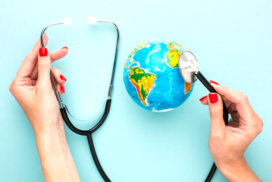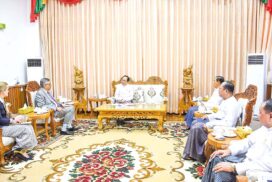Pneumonia, an infectious disease with swift repercussions, poses a grave threat to both children and the elderly worldwide. Its impact on children surpasses the combined mortality rates of AIDS, measles, and malaria, earning it the designation of a formidable health adversary. The World Health Organization (WHO) alarmingly reported that, in 2019 alone, 2.5 million individuals globally, including 672,000 children, succumbed to pneumonia. This underscores the urgency of addressing the critical issue of lung health across all age groups.
Air pollution emerges as a primary culprit, wielding detrimental effects on populations globally. WHO identifies air pollution, stemming from various sources such as smoke from cooking, heating, and the use of firewood and charcoal, as a leading cause of lung-related diseases. In particular, pneumonia infections are exacerbated by inhaling pollutants from cooking, lighting, and the burning of mosquito coils and joss sticks. A collective effort is imperative to mitigate the impacts of air pollution, as it continues to claim lives across the globe.
Preventive measures against pneumonia must be adopted not only by healthcare professionals but also by individuals. Efforts to reduce air pollution, which plays a pivotal role in triggering pneumonia, are essential for safeguarding the health of children and older individuals. Over 50 per cent of deaths among the elderly can be attributed to the detrimental effects of air pollution, as they lack the resilience to access clean air for optimal respiratory function.
Urban areas with high population density are particularly susceptible to pneumonia outbreaks. Managing crowded public spaces, such as bus stops, railway stations, marketplaces, and worksites, is crucial for minimizing the risk of infectious diseases, including pneumonia. Addressing root causes, such as carbon dioxide, excessive humidity, and inadequate drainage systems that foster mosquito breeding, is essential in the fight against pneumonia.
The ongoing COVID-19 pandemic further accentuates the vulnerability of lung health. Individuals with pre-existing lung conditions face heightened risks during the pandemic, necessitating stringent measures. The WHO has highlighted the increased susceptibility of smokers to severe COVID-19 impacts due to compromised lung function. Despite intensified efforts to treat COVID-19 patients with pneumonia, the pneumonia-related mortality rate continues to rise.
Individuals must recognize the interconnectedness of their health conditions and take proactive steps to protect their lungs. Daily lifestyle choices, especially concerning air pollution, directly impact lung health. Efforts to curtail air pollution are paramount for enhancing the longevity of lung function and ensuring a healthier, disease-resistant life.














